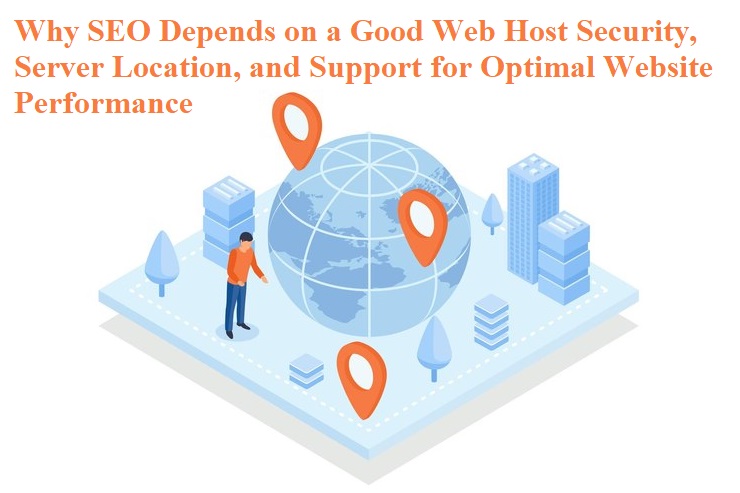Security
A reliable web host enhances your website's security, which is vital for SEO. Websites that are secure reduce the risk of hacking and data breaches, which can lead to downtime and loss of user trust. Search engines like Google prioritize secure sites; having an SSL certificate (which enables HTTPS) is now a ranking factor. Sites without SSL may rank lower in search results, as they are deemed less trustworthy by users and search engines alike. Essential for user trust and search engine rankings; includes SSL certificates.Server Location
The physical location of your web server can significantly affect your site's performance and SEO rankings. Search engines consider the server's IP address when delivering localized results. If your target audience is in Australia, having your server located there can improve loading times and increase relevance in local search results. Influences loading times and local SEO; servers should ideally be near the target audience. A closer server reduces latency, which enhances user experience another critical factor for SEO.Website Performance
Website performance, particularly loading speed, is paramount for SEO. Google has set benchmarks for page load times, with an ideal load time of under two seconds for mobile devices. Faster websites lead to better user experiences and lower bounce rates, enhancing SEO outcomes. Good hosting services typically offer faster loading speeds, higher uptime reliability, and fewer server errors, all contributing to better user engagement and improved search rankings.How does Server Location Impact SEO Rankings
Server location significantly impacts SEO rankings through its influence on site speed, local relevance, and user experience. Choosing a hosting provider with servers located near your primary audience can thus be a strategic decision for enhancing your website's SEO performance.-
Site Speed and Latency
The physical distance between the server and the user affects how quickly a website loads. When a server is located far from its target audience, data must travel longer distances, resulting in increased latency. This delay can lead to slower page load times, which negatively impacts user experience. Research indicates that even a 100-millisecond delay can decrease conversion rates by up to 7%13. Fast-loading websites not only retain visitors better but also rank higher in search engine results, as Google considers page speed a crucial ranking factor.
-
Local Relevance
For businesses targeting specific geographic areas, server location can enhance local SEO efforts. This is particularly important for local businesses, as proximity can help improve their visibility in local search results. While Google does not use server location directly for geo-targeting, it does consider it as part of the broader context of relevance when determining search rankings.
-
User Experience
A website’s performance is closely tied to user experience metrics such as bounce rate and dwell time. Slow-loading sites tend to have higher bounce rates, meaning users leave quickly without engaging with the content. Increasing page load time from 1 second to 3 seconds can cause a 32% increase in bounce rates. Conversely, faster sites provide a better user experience, leading to longer dwell times and lower bounce rates, which are favorable for SEO rankings.
